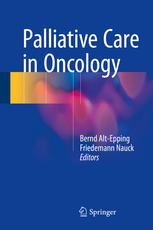

Most ebook files are in PDF format, so you can easily read them using various software such as Foxit Reader or directly on the Google Chrome browser.
Some ebook files are released by publishers in other formats such as .awz, .mobi, .epub, .fb2, etc. You may need to install specific software to read these formats on mobile/PC, such as Calibre.
Please read the tutorial at this link: https://ebookbell.com/faq
We offer FREE conversion to the popular formats you request; however, this may take some time. Therefore, right after payment, please email us, and we will try to provide the service as quickly as possible.
For some exceptional file formats or broken links (if any), please refrain from opening any disputes. Instead, email us first, and we will try to assist within a maximum of 6 hours.
EbookBell Team

4.1
10 reviewsPalliative care provides comprehensive support for severely affected patients with any life-limiting or life-threatening diagnosis. To do this effectively, it requires a disease-specific approach as the patients’ needs and clinical context will vary depending on the underlying diagnosis. Experts in the field of palliative care and oncology describe in detail the needs of patients with advanced cancer in comparison to those with non-cancer disease and also identify the requirements of patients with different cancer entities. Basic principles of symptom control are explained, with careful attention to therapy for pain associated with either the cancer or its treatment and to symptom-guided antineoplastic therapy. Complex therapeutic strategies for palliative cancer patients are highlighted that involve both cancer- and symptom-directed options and address a range of therapeutic aims. Issues relating to drug use in palliative cancer care are fully explored, and a separate section is devoted to care in the final phase. A range of organizational and policy issues are also discussed, and the book concludes by considering likely future developments in palliative care for cancer patients. Palliative Care in Oncology will be of particular interest to palliative care physicians who are interested in broadening the scope of their disease-specific knowledge, as well as to oncologists who wish to learn more about modern palliative care concepts relevant to their day-to-day work with cancer patients.